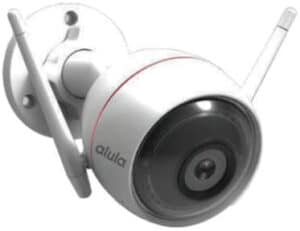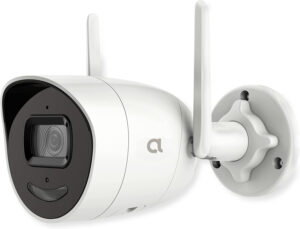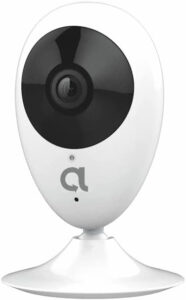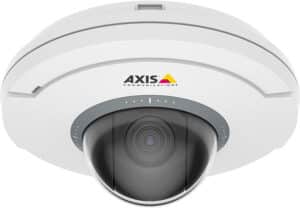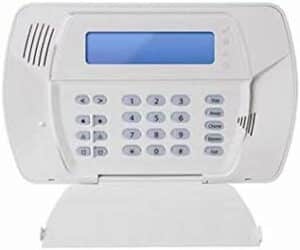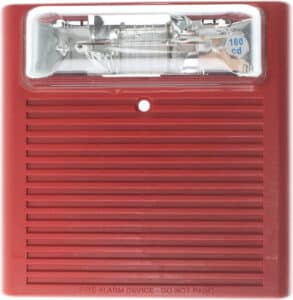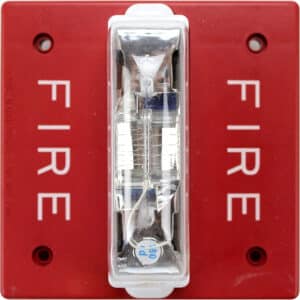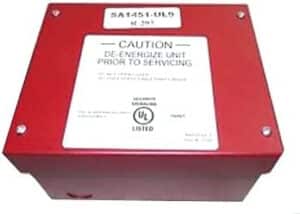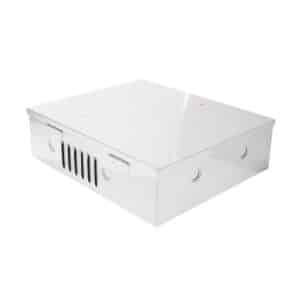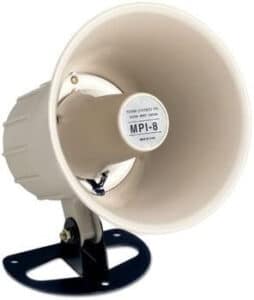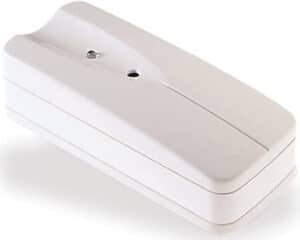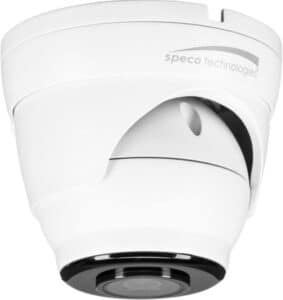11 Essential Home Building Security System Tips for Keeping Your Property Safe
Building a home security system is essential for keeping your property safe. Whether you are a new homeowner or have been living in your home for years, it is important to stay up-to-date with the latest security system trends and technology.
In this article, we will discuss 11 essential home building security system tips that can help protect your home and keep your family safe. From installing motion-activated lights to setting up a surveillance camera system, these tips will help ensure that your home is secure against intruders. With the right home security system in place, you can rest easy knowing that your home is safe and secure.
Table of Contents
What is a Home Security System, and How Do They Work?
A home security system is an electronic system designed to protect your home and property from burglars, theft, and other potential dangers. It typically consists of a network of devices that work together to detect and alert you of any unusual activity or unauthorized access to your premises.
The way these devices work is by sending signals to the central monitoring station or directly to your phone whenever they detect suspicious movements or disturbances in their field of coverage. The control panel acts as the brain of the operation, receiving input from all the sensors and processing them into actionable alerts.
Once an alarm is triggered, either audibly or silently depending on your preference, you can take immediate action by calling for emergency response services if necessary.
Types of Home Security Systems, and Which Type is Best for Your Home?
Most people think of home security systems as something that companies install, but home security systems can also be do-it-yourself (DIY). You’ll still need to purchase a few devices to set up a DIY home alarm system, including a security camera and a smart lock, but you’ll be able to set up the entire system at your own pace, on your own time using DIY home alarm kits.
It doesn’t take a ton of cash to get a security system up and running either. You can get a security system for less than $100 (we recommend you look at our shop page for our range of DIY home security systems) and cameras for even less. Smaller homes or apartments may even find smart locks cheaper to install.
DIY monitoring is also an option, so you’ll be able to keep an eye on things even while you’re away from home. Each DIY system comes with its own app, however, so you’ll want to make sure you have new ways to control your home’s security.
-
-
Cameras: Cameras help you keep an eye on your home when you’re not around, so we recommend installing cameras in several key locations around your home. A front door camera that allows you to see visitors coming up your sidewalk and into your yard or a guest entry camera that lets you check in on visitors is great, and you don’t need more than one camera either. The entrance and front door are common weak spots in a home security system, so it’s a great idea to tuck a camera in close by.
-
-
-
Motion detectors: Motion detectors can be placed near windows or doors, triggering cameras when they detect movement. This allows you to look in if someone passes through a window or door when they’re not supposed to be in your home, which will help you identify potential intruders.
-
-
-
Doorbell cameras: Doorbell cameras let you see who is ringing your doorbell. This means you’ll be able to look in on visitors when they’re in your yard or see who’s at the door without having to open the door. Doorbell cameras also let you see who is requesting access to your home.
-
-
-
Wireless alarms: When choosing a home alarm system, we recommend a wireless option. Wireless systems run on batteries, so there’s no need to worry about the complicated installation process that comes with wired systems. Plus, if there are any problems, a wireless system will allow for easy repairs. Wireless systems also allow you to add devices as needed, so your home alarm system can grow as your needs grow.
-
-
-
Smart locks: Smart locks let visitors into your home without you being there. You can give them a code or a key fob that will allow them access to your home. This is a great way to let in friends, family, or service personnel without having to worry about them having a key or gaining access to your home when you’re not around. Plus, you can monitor who is coming and going with the help of a smart lock.
-
11 Essential Home Building Security System Tips for Keeping Your Property Safe
Home security is an essential aspect of any home-building project. It is important to invest in effective security systems that can provide protection against burglary, theft, and intruders on your property. Here are 11 essential home-building security system tips for keeping your property safe:
1. Invest in Monitored Systems
Monitored home security systems offer 24/7 monitoring services that can alert emergency services in case of any security breach. Ensure that your security system is monitored by a reputable company.
2. Install Smart Locks
Smart locks provide convenience and enhanced security. They allow you to remotely control who enters your property, and you can access them using your smartphone or computer.
3. Use Motion Sensors
Motion sensors can detect any suspicious movement in and around your property like garage doors and other exterior doors. They can be used to trigger alarms or alert monitoring services in case of any movement is detected.
4. Secure Doors and Windows
Ensure that all your windows and doors are secured with strong locks, and they are of high-quality standards. Use shatterproof glass or reinforced steel for your entry points. If you have a sliding door, it is necessary to secure that as well.
5. Utilize Outdoor Lighting
Outdoor lighting helps to deter intruders and enhances visibility in and around your property. Use motion-activated lights and ensure that all the entry points are well-lit.
6. Install Surveillance Cameras
Security cameras can capture any suspicious activities in and around your property. They can help identify any intruders and provide evidence in case of any criminal activity.
7. Protect Wi-Fi Networks & Devices
Although not directly related to home security, it is necessary to use strong passwords and updated antivirus software to secure your Wi-Fi network and connected devices to protect your privacy and information from internet intruders. Avoid sharing your passwords and limit access to your Wi-Fi network.
8. Place Timers on Lights & Appliances
Use timers on your lights and appliances to create an impression of occupancy when you are traveling or not at home. This helps to deter burglars from attempting to break in.
9. Upgrade Your Doorbells & Intercoms
Smart doorbells and intercoms provide video and audio communication with visitors. They allow you to speak to the visitors and see them without opening the door. Upgrade your outdated doorbells and intercoms with smart ones.
10. Inspect for Weak Points Regularly
Regularly inspect your property for any weak points or potential security breaches. Fix any issues identified to enhance your home security.
11. Change Key Codes Regularly
Change your password and key codes regularly, especially if you have a lot of people with access to your property. This helps to ensure that only authorized people can access your property.
Bonus Home Security Tips
How to Use Spare Keys to Increase Home Security
Setting up a smart lock on our front door allowed us to give temporary (and secure!) access to people during specific time periods. When our dog sitter came by, he could bring her in with a temporary code, but when it expired, she would have to leave.
Suddenly, we found ourselves with a spare key.
In the past, spare keys had only been useful in an emergency situation, but these days, a smart lock makes an accidental loss or spare keys easier to handle. If you have a spare key, make sure that you keep it in a safe, secure place. You don’t want it to be too accessible to anyone who might find it. Another way to use spare keys to increase home security is by giving them to a trusted neighbor or friend who lives nearby. This way, if you ever need access to your home, you can call them for help.
You can also store spare keys in a lockbox outside your home, like a combination lockbox. This way, you can give the combination to trusted friends and family members, and they can access the key at any time.
No matter what you choose to do with your spare key, it’s important to keep it in a secure place and make sure that only trusted individuals have access to it.
Protecting Your Home by Maximizing the Security of Door Hinges
If your home is vulnerable to entry, it’s quite likely that security hinges could be an effective and affordable solution. Hinges prevent the door from opening more than a few inches, making it easy to determine if an item or person is on the other side of your door. The hinges also make it nearly impossible for burglars to kick in your door.
As an extra precaution, you can purchase security latches that are attached to the inside of your security door. These latches can only be unlocked when the security door opens about two inches.
Security doors are made of reinforced steel, which protects you and your family from intruders. Security doors are locked with a key and cannot be opened without a key, giving you confidence that intruders can’t get into your home.
The doors are also outfitted with two locking bolts, ensuring that intruders will be unable to break through.
Security doors cannot be opened by biting or kicking.
Security doors are outfitted with two locking bolts, ensuring that intruders will be unable to break through. In addition, security doors come with a variety of features to further secure your home, including deadbolts, peepholes, and keypads.
Security doors also add an extra layer of protection to your home. They provide a physical barrier that is difficult to breach and create a psychological deterrent for criminals.
In addition to the locking bolts, you can further secure your door with the purchase of security latches. These latches feature a hardened steel pin that holds the door in place, making it difficult to pry open.
Finally, security doors come with a variety of features to further protect your home. These features include security glass, shatter-resistant glass, and motion detectors.
Working with Your Local Police Department to Increase Security
Every police officer has compiled a ‘hot list’ of crime-susceptible areas, areas that aren’t too heavily monitored. You can reach out to your local police department, as well as your neighborhood watch programs, and work with them to help increase security. You can do this through tips, working with local homeowners associations, and block watch tactics.
Ask if there are any particular local areas that receive frequent break-ins but also have a low amount of security. If so, you can work together with your neighbors and the police to try and make these areas more secure. Maybe you can all get alarm systems installed. Share your stories and tips with other homeowners. Once you work with the police, you have so many more resources at your disposal and, who knows, you may even end up working with them again in the future.
Conclusion
We hope that you have learned the importance of having a home security system and the essential tips for keeping your property safe. From the best DIY home security systems to the essential security features, you can now feel at ease knowing your home and its belongings are safe.
If you are looking for DIY home security products to help secure your property, Xcessory Zone offers a variety of top-notch products. Their products are reliable, affordable, and easy to install.
Take the necessary steps today to ensure your home and property are secure. Invest in your safety and peace of mind by investing in a home security system. Visit Xcessory Zone to find the perfect DIY home security system for you.
FAQs
What are the five element of good security?
Good security is essential for protecting yourself, your family, and your possessions. The five elements of good security are:
1. Garage Door: Make sure your garage door is always locked. This is the first line of defense against burglars. Consider installing a motion-sensor security light outside your garage door to deter potential break-ins.
2. First-Floor Windows: Secure all first-floor windows with good locks. Make sure to use locks that are strong and secure enough to resist forced entry.
3. Unlocked Door: Avoid leaving your door unlocked. This is an easy way for burglars to gain access to your home. Make sure to lock all outside doors, even if you are only leaving for a few minutes.
4. Surveillance System: Install a surveillance system to monitor your property and detect intruders. This can be a great deterrent for burglars and can help identify them if they get past your physical security measures.
5. Security Lighting: Install motion-sensor security lights around the perimeter of your home. This will illuminate any intruder who is trying to access your property at night.
These five elements of good security are essential for keeping your home and family safe. Make sure to take the necessary steps to secure each of these areas to create an effective security system.
What should a home security system include?
A home security system should include a number of safeguards to protect your home and property. A comprehensive home security system should include smart systems, motion detector lighting, and other outdoor buildings.
Smart systems are designed to provide round-the-clock monitoring of your home and property. Motion detector lighting can be used to deter intruders and alert you to potential trespassers. Other outdoor buildings, such as garages and sheds, should be secured with locks and other devices to prevent unwanted access.
In addition to smart systems and motion detector lighting, you should also consider installing an alarm system. An alarm system can be used to detect movement and alert you to any suspicious activity. If your alarm system is connected to a monitoring service, they can contact authorities in the event of an emergency.
Finally, it’s important to ensure that all external doors and windows are properly secured. This includes replacing weak locks, adding deadbolts, and installing shatter-resistant glass. You should also consider adding an additional layer of protection with exterior lighting that is triggered by motion.
How to build the best home security system?
If you’re looking for the best home security system, then you have many options – from free security tips to investing a few hundred dollars. To ensure maximum safety for your home, here are some home security tips to consider: Install motion-activated lights outside, get a monitored system, and/or consider investing in a home security camera.
Installing motion-activated lights outside your home is an easy and cost-effective way to deter potential intruders. A monitored system is a great option for those who want 24/7 protection, as it allows you to connect with a monitoring service that can alert authorities in the event of an emergency.
Finally, investing in a home security camera is a great way to keep an eye on your property. With the right system in place, you can rest assured knowing your home is safe and secure.
Meet Our Partners!




